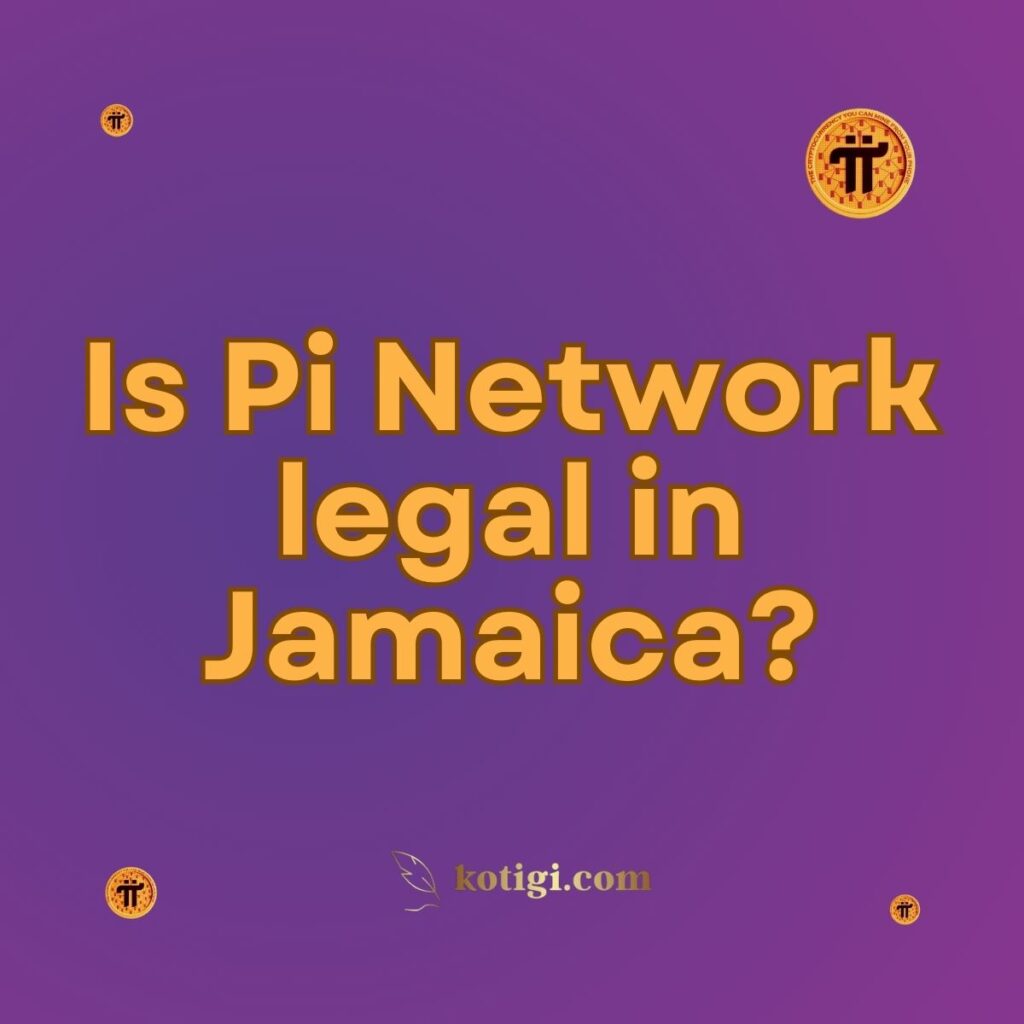
Is Pi Network legal in Jamaica?
Pi Network is currently legal in Jamaica, as there are no specific laws or regulations prohibiting the use of cryptocurrencies in the country. However, Jamaica’s regulatory framework for digital assets is still in development, making it important for users to stay informed about any changes.
Introduction
As Pi Network grows globally, Jamaican users are increasingly interested in whether the platform is legal and how it fits into the country’s regulatory framework. While Jamaica does not have specific laws regarding Pi Network, the platform operates within the existing legal boundaries for cryptocurrencies. In this article, we will examine the current state of cryptocurrency regulations in Jamaica, the legal considerations for Pi Network users, and the potential future of digital assets in the country.
Cryptocurrency Regulations in Jamaica
Lack of Specific Crypto Legislation
Jamaica has not yet introduced comprehensive laws specifically targeting cryptocurrencies. The country’s central bank, the Bank of Jamaica (BoJ), has acknowledged the growing presence of digital assets but has not established a clear regulatory framework for platforms like Pi Network. This means that while Pi Network is not illegal, it operates in a regulatory grey area.
Jamaican authorities have indicated that they are exploring the possibility of regulating cryptocurrencies in the future, especially as digital assets become more prevalent. For now, Pi Network users can participate freely, but they should remain aware of potential future regulations that could impact their ability to use and trade Pi coins.
The Role of the Bank of Jamaica
The Bank of Jamaica has taken a cautious approach to cryptocurrencies. It has not yet adopted a formal stance on platforms like Pi Network but is closely monitoring the development of digital currencies. The BoJ has also been focused on its own digital currency project, known as the Jamaica Digital Exchange (Jam-Dex), which could shape how the country approaches private cryptocurrencies in the future.
Taxation and Financial Regulations
General Tax Obligations
Jamaican users of Pi Network should be aware that any profits made from future trades or sales of Pi coins could be subject to taxation under the country’s existing tax laws. While Pi coins are not yet tradable, once they are, users may need to report any capital gains to the Tax Administration Jamaica (TAJ). Currently, there are no specific tax regulations for cryptocurrencies, but users should consult tax professionals to ensure compliance with Jamaican tax laws when the time comes.
Anti-Money Laundering (AML) and Know Your Customer (KYC) Regulations
Although Pi Network does not currently require extensive KYC for participants mining Pi, any future exchanges or trading of Pi coins could be subject to Jamaica’s AML regulations. Financial institutions in Jamaica are already required to adhere to strict KYC and AML laws to prevent illicit activities, and it is likely that cryptocurrency exchanges will need to comply with these requirements in the future. Pi Network users should be mindful of these regulations as the platform evolves and Pi coins become tradeable.
Pi Network’s Role in Jamaica’s Financial Ecosystem
Promoting Financial Inclusion
One of the key benefits of Pi Network in Jamaica is its potential to promote financial inclusion. Many Jamaicans face barriers to accessing traditional financial services, and Pi Network’s mobile mining model provides an accessible entry point into the world of digital currencies. By allowing users to mine Pi coins directly from their smartphones, Pi Network democratizes access to cryptocurrency, making it easier for people from all walks of life to participate in the digital economy.
Opportunities for Business Integration
As Jamaica’s fintech sector grows, Pi Network could play a role in enabling businesses to integrate cryptocurrency into their operations. Local businesses may explore ways to accept Pi coins as payment or use them in loyalty programs. However, the success of such initiatives will depend on future regulatory developments and the broader adoption of cryptocurrencies in Jamaica.
Legal Considerations for Pi Network Users
Consumer Protection and Security Risks
While Pi Network is currently legal in Jamaica, the lack of formal regulation means that users have limited legal protections. Should users encounter fraud, technical issues, or disputes, there may be no formal recourse under Jamaican law. As such, it is important for Pi Network participants to exercise caution and take steps to secure their accounts, such as enabling two-factor authentication (2FA) and safeguarding their private keys.
Additionally, users should stay informed about any developments in Jamaican cryptocurrency law, as the government may introduce regulations that impact Pi Network’s legal status or operational procedures.
Future Regulatory Developments
The Jamaican government has shown interest in developing a regulatory framework for cryptocurrencies, though it has not yet introduced specific laws. As cryptocurrencies become more prominent, it is likely that Jamaica will adopt regulations to govern the use of digital assets, including Pi Network. Users should stay updated on announcements from the Bank of Jamaica and the government regarding the future of cryptocurrency regulation in the country.
Jamaica’s Approach to Digital Currencies
Development of Jamaica Digital Exchange (Jam-Dex)
The Jamaica Digital Exchange (Jam-Dex) is a key part of Jamaica’s strategy to embrace digital currencies. This central bank digital currency (CBDC) is designed to promote greater financial inclusion and improve access to banking services for underserved populations. While Jam-Dex is not a cryptocurrency, its development reflects the government’s interest in digital currencies and could influence how private cryptocurrencies like Pi Network are regulated in the future.
Growing Interest in Blockchain Technology
Jamaica has shown growing interest in blockchain technology, particularly in sectors such as finance and logistics. The potential for blockchain to increase transparency and efficiency has captured the attention of both the government and private industry. Pi Network, with its decentralized structure and community-driven validation process, could fit into this emerging ecosystem, especially as Jamaica’s blockchain sector continues to develop.
Conclusion
Pi Network is currently legal in Jamaica, but the country has not yet established specific regulations for cryptocurrencies. While users can freely participate in the platform, they should be mindful of potential future regulations that may impact how Pi Network operates in the country. As Jamaica continues to explore the benefits of digital currencies and blockchain technology, Pi Network users should stay informed about changes in the legal landscape.
For now, Pi Network offers an accessible and inclusive way for Jamaicans to engage with cryptocurrency, though participants should remain cautious and aware of the risks involved in an unregulated market.
Key Takeaways
- Legal Status: Pi Network is legal in Jamaica, with no specific regulations prohibiting its use.
- Government Stance: The Bank of Jamaica has acknowledged cryptocurrencies but has not yet developed a comprehensive regulatory framework.
- Tax Considerations: Users should be aware of potential tax obligations for profits gained from Pi coins in the future.
- Financial Inclusion: Pi Network’s mobile mining model offers a way to promote digital inclusion in Jamaica.
- Future Regulations: The development of Jam-Dex and growing interest in blockchain technology may influence future cryptocurrency regulations in Jamaica.





